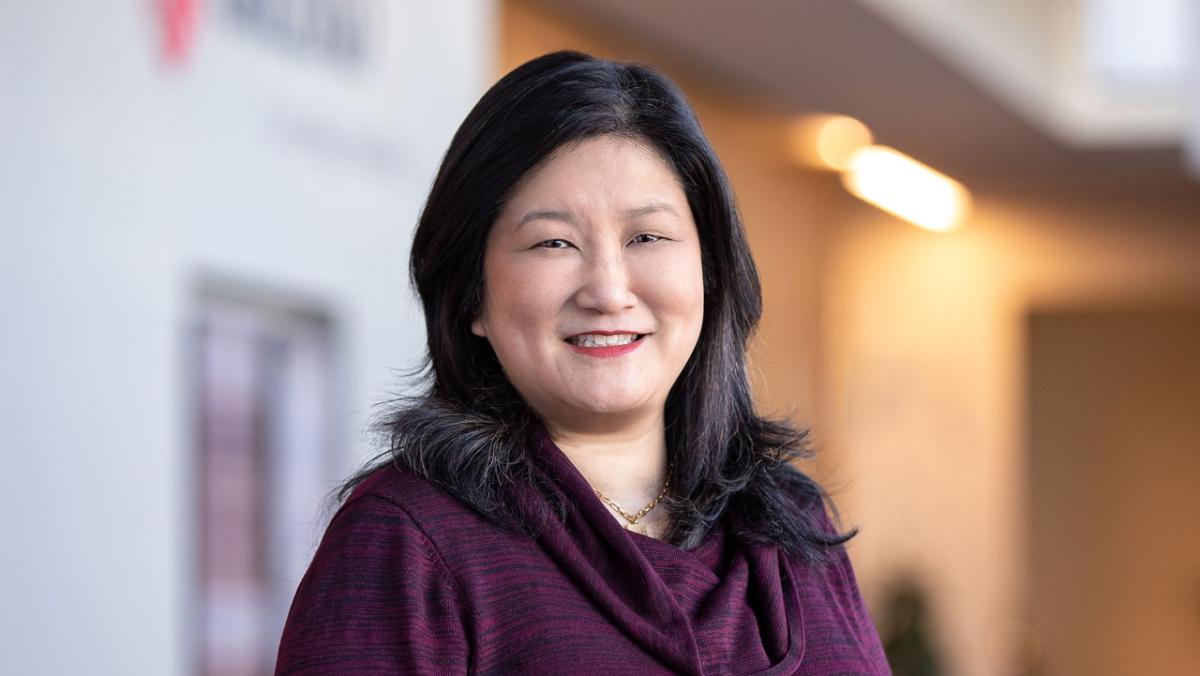4 Questions With Betty Chiang: Addressing Health Disparities in the Asian Community

As a young girl, Betty Chiang was curious to explore how science affected our wellbeing and health. Growing up, she witnessed some family and friends experiencing health issues that were not as prevalent in the general population.
"I still remember a family friend in his 30s, a seemingly healthy person, who suddenly became ill and passed away from hepatitis B related liver cancer," says Betty. "I later learned that hepatitis B disproportionately affects the Asian community, which largely influenced my decision to explore medicine as a career path to help people I cared about.”
We connected with Betty, Vice President of International Medical Affairs and interim Vice President of Global Medical Affairs Oncology, to learn more about her career path and how at Gilead, she remains dedicated to addressing health disparities.
Q: What path did you take to fulfill your aspiration to address these disparities?
Knowing that health sciences could make a difference for people and that my community was disproportionately affected by certain diseases, I had an incredible sense of urgency in wanting to complete my education so that I could help right away. This sense of urgency led me to enroll in an accelerated combined Bachelor of Arts and Doctor of Medicine program at Brooklyn College and Downstate Health Sciences University.
Subsequently, I underwent my internal medicine training at New York University Medical Center and Bellevue Hospital, the flagship public hospital of New York. I learned not only how to be a well-trained physician, but also the importance of being a strong advocate for my patients. My residency years at Bellevue caring for the underserved communities of Manhattan had such a profound influence on my career decisions, from being a primary care physician to my years working on global public health at Gilead.
Q: You have been with Gilead now for 15 years. What led you to join the organization from being a practicing physician?
As a practicing physician next to Chinatown in New York, I knew there were many ways I could make a difference in the Asian community. My patients preferred having their health services near their home and being able to communicate in their native language. I would often have a hard time getting them to see specialists in academic medical centers. Joining Gilead allowed me to advance hepatitis B awareness and medical education on a much larger scale and make a greater impact. Many of the community physicians in New York are colleagues I had known for years and I knew they were better situated to diagnose and provide continuous care, both of which are critical given the chronic nature of hepatitis B.
Q: What continues to motivate you?
I remain passionate about making a difference to those underrepresented in their health issues and continue to be a champion for health equity. Through my work at Gilead, I’m able to tackle challenging public health issues in viral hepatitis and HIV affecting millions of people worldwide, many of whom remain undiagnosed despite the availability of effective treatments. I’m most proud of my work in virology that contributed to scientific knowledge, research and collaborations that benefited people living in the most vulnerable communities from low- and middle-income countries.
Q: What's your current focus and what's next for you?
I currently have additional scope of work and responsibilities as the interim Vice President of Global Medical Affairs Oncology. I am inspired by my colleagues working in oncology and our ambitious portfolio that will enable us to become a top oncology company. As one of the Co-Chairs of Gilead Asian Interest Network (GAIN), an employee resource group (ERG) in the organization, I see many opportunities and synergies where this ERG can make a direct impact and difference in this space, especially for people with breast and blood cancers. My aim all along has been to address health disparities in my community. Gilead gave me the platform to help more people than I could have as a clinician and make a significant difference to countless underserved people around the world. My career interests and next steps are always toward a challenge where I can help make a difference.

